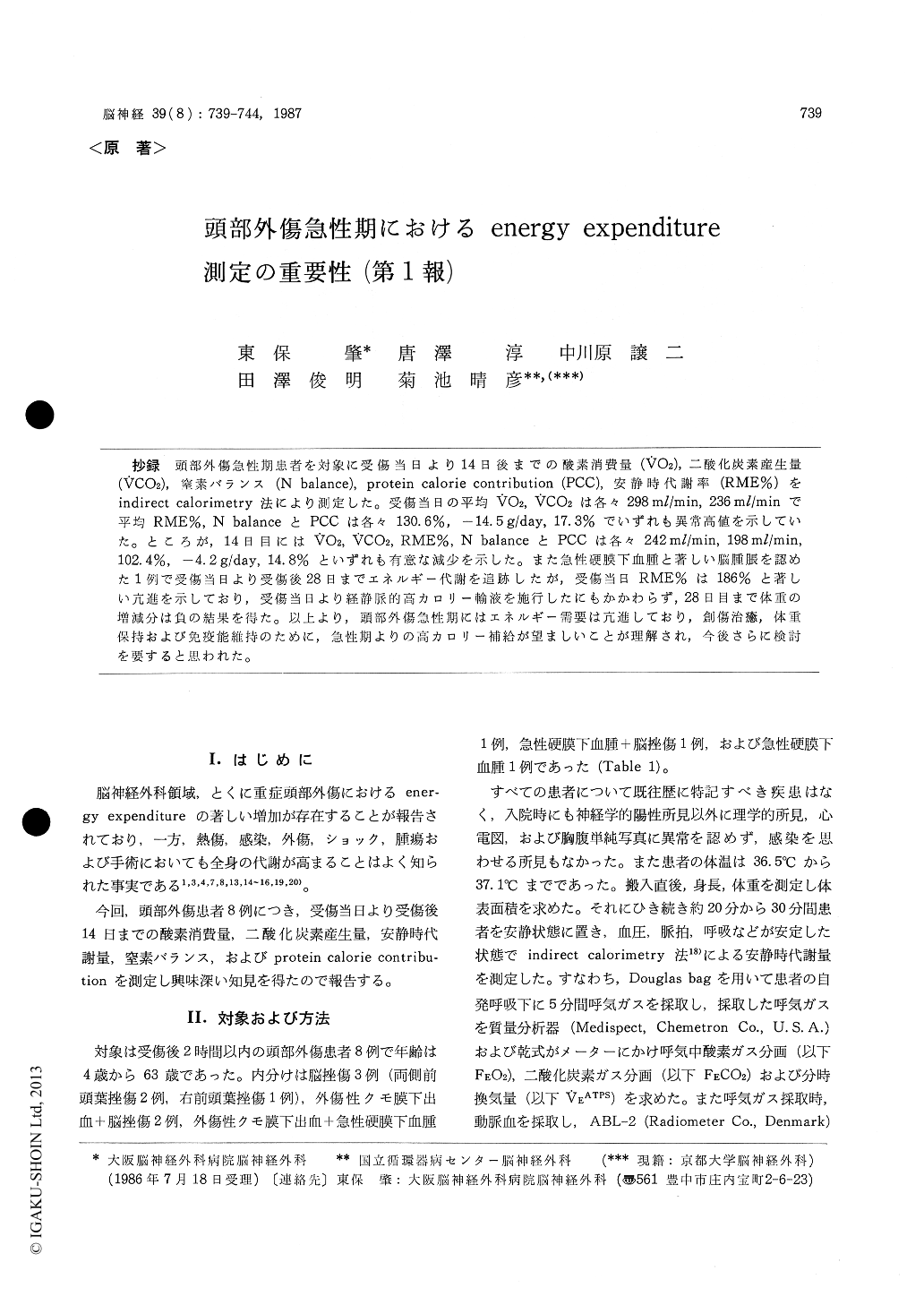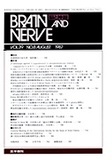Japanese
English
- 有料閲覧
- Abstract 文献概要
- 1ページ目 Look Inside
抄録 頭部外傷急性期患者を対象に受傷当日より14日後までの酸素消費量(VO2),二酸化炭素産生量(VCO2),窒素バランス(N balance),protein calorie contribution(PCC),安静時代謝率(RME%)をindirect calorimetry法により測定した。受傷当日の平均VO2,VCO2は各々298ml/min,236ml/minで平均RME%,N balanceとPCCは各々130.6%,−14.5g/day,17.3%でいずれも異常高値を示していた。ところが,14日目にはVO2,VCO2,RME%,N balanceとPCCは各々242ml/min,198ml/min,102.4%,−4.2g/day,14.8%といずれも有意な減少を示した。また急性硬膜下血腫と著しい脳腫脹を認めた1例で受傷当日より受傷後28日までエネルギー代謝を追跡したが,受傷当日RME%は186%と著しい亢進を示しており,受傷当日より経静脈的高カロリー輸液を施行したにもかかわらず,28日目まで体重の増減分は負の結果を得た。以上より,頭部外傷急性期にはエネルギー需要は亢進しており,創傷治癒,体重保持および免疫能維持のために,急性期よりの高カロリー補給が望ましいことが理解され,今後さらに検討を要すると思われた。
Oxygen consumption (VO2), carbon dioxide production (VCO2), resting metabolic expenditure (RME), RME of that expected for an uninjured resting person of equivalent age, sex, and bodysurface area (RME%), nitrogen balance, and protein calorie contribution (PCC) were measured in 8 patients with head injury. Metabolic measurements were carried out with the technique of indirect calorimetry from onsets to 14th day. Mean values of VO2 and VCO2 were 298 ml/min, 236 ml/min respectively on admission and those decreased gradually. Mean values of RME%, nitrogen balance, and PCC were 130.6%, -14.5 gm/day, and 17.3% respectively on admission. And those three values significantly decreased on 14th day in those 8 patients. From those facts, it was implied that hypermetabolism and hypercatabolism existed, and measurement of energy expenditure was indispensable to supply enough calorie maintaining body weight and immunccompetence in the acute stage of head injury.

Copyright © 1987, Igaku-Shoin Ltd. All rights reserved.


